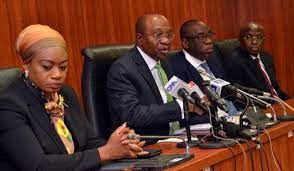As the Monetary Policy Committee meeting starts Monday, A Professor of Finance and the Capital market at the Nasarawa State University, Uche Uwaleke has urged the Monetary Policy Committee (MPC) to hold Monetary Policy Rates (MPR) at 18.50 per cent.
At the last MPC meeting in May chaired by suspended CBN Governor, Godwin Emefiele, the Committee hiked interest rate to 18.50 per cent from 18.00 per cent. The move marked the seventh consecutive hike and brought total tightening since May 2022 to 700 basis points.
The Committee also retained the Asymmetric Corridor of +100/-700 basis points around the MPR; the CRR at 32.5 per cent; and the Liquidity Ratio at 30 per cent.
The tightening by the Committee was part of an effort to fight inflation.
According to data by the National Bureau of Statistics (NBS), headline inflation rate accelerated for the sixth consecutive time to 22.79 per cent in June 2023.
While noting that another rate hike will not come as a surprise, he however urged the Committee to consider current economic realities.
Uwaleke said: “Be that as it may, the MPC should equally recognise that the removal of fuel subsidy has slowed down economic activities considerably with attendant drop in productivity. So, economic growth and jobs are already negatively impacted such that a further monetary policy tightening would only worsen the situation through the credit channel as cost of capital is increased and access to credit by small businesses is made more difficult.
“Also a further increase in the Monerary Policy Rate is likely to endanger the asset quality of banks through an increase in non-performing loans as deposit money banks reprice their loans.
“In this regard, the balance of risks dictates that the MPC should pause the policy rate hikes, which have been on since May last year by maintaining a hold position on all policy parameters during the meeting.
“The MPC should recognise that much as its primary mandate is to maintain price stability, it equally has a responsibility to support output growth. This is against the backdrop of the fact that many of the factors driving inflation in Nigeria, such as insecurity affecting food output and high energy costs are outside the control of the CBN.
“All said, the MPC should seize the opportunity of the meeting to signal readiness to support output growth through policies geared towards fostering a low interest rates environment while keeping an eye on inflation using a mix of hererodox measures,” he further explained.




